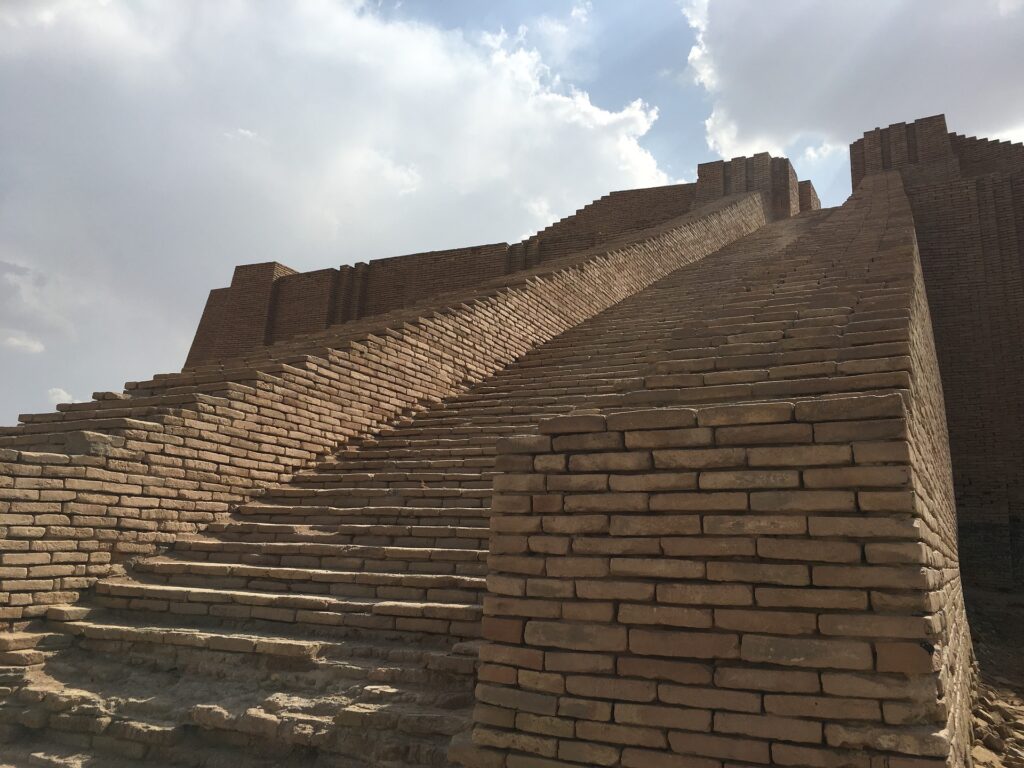This page may contain affiliate links, which means I may receive a commission from purchases made through links.
If you have spent any amount of time in church, you have probably heard Matthew 4:19: “Follow me, and I will make you fishers of men.” Jesus said these words to fishermen, so there is an obvious play on their job title, but what does it mean to be “fishers of men”? To find out what Jesus was communicating to these soon-to-be disciples, we need to look at this story as it appears in three of the gospel accounts. In doing so, we will discover a profound reality about the kinds of people who Jesus calls to follow him.
Fishers of Men in the Synoptic Gospels
Because the accounts are so similar, I want to cover Matthew’s and Mark’s takes on this story together. Matthew begins his version of events immediately after his summary of Christ’s preaching in the region of Galilee in 4:12-17.1 Let’s read through what he has to say:
“While walking by the Sea of Galilee, he saw two brothers, Simon (who is called Peter) and Andrew his brother, casting a net into the sea, for they were fishermen. And he said to them, ‘Follow me, and I will make you fishers of men.’ Immediately they left their nets and followed him. And going on from there he saw two other brothers, James the son of Zebedee and John his brother, in the boat with Zebedee their father, mending their nets, and he called them. Immediately they left the boat and their father and followed him” (Matthew 4:18-22).
Mark’s narrative is almost identical to Matthew’s, with only a few different word choices. He also adds one additional detail that there were “hired servants” left in the boat with Zebedee (Mark 1:20).
The first thing we observe about this passage is that Jesus saw these men and wanted them to follow him. This sounds redundant at first, but there is beauty here that I don’t want you to miss. Jesus was establishing a traveling teaching ministry, something quite common for rabbis of the first century. The difference with Jesus is that other rabbis only chose the best students for themselves. They chose people who devoted themselves to Torah, who followed the law perfectly. The students they wanted as their disciples were those they saw as having the potential to become like them. In others words, a well-seasoned rabbi would typically choose only the most promising, scholarly students to follow them.
These four fishermen, by their very career, were telegraphing their insufficiency to be disciples. Young Jewish boys learned the basics of Torah, and they grew up under various kinds of teachers of the law. There was, however, a limit to how far most of them could go in their studies. For all we know, these fisherman were faithful Jews, doing the best they could with the knowledge they had. We do know for certain, though, from their later interactions with religious leaders, that they were “uneducated, common men” (Acts 4:13).
Now, there is nothing morally wrong with being either uneducated or common, but they chose a career in the marketplace because they were not qualified to be disciples of the average rabbi. Thank God that Jesus is no average rabbi! Jesus chose “uneducated, common men” to become fishers of men! It is a popular adage, but it is not cliché: Jesus does not call the qualified; he qualifies the called.
Check out (Un)Qualified: How God Uses Broken People to Do Big Things by Steven Furtick!
Why is Luke’s “Fishers of Men” Story so Different?
While it makes a similar point, Luke’s version of this story is crucial to our understanding of it. He adds many details not included in the other two. Because of this, it seems like a totally different story to the passive reader, but the differing details are not contradictions. Rather, Luke is filling in gaps of the story left out by the other two.
For instance, we see that Jesus was not alone with the fishermen as it appears in Matthew and Mark. Luke tells us that “while the crowd was pressing in on him to hear the word of God, he was standing by the lake of Gennesaret” (another name for the Sea of Galilee), “and he saw two boats by the lake, but the fishermen had gone out of them and were washing their nets (Luke 5:1-2). That doesn’t mean that Matthew and Mark are claiming that no one else was around. They just didn’t say one way or the other.
Mark’s goal is to get the reader to the death and resurrection of Jesus as quickly as possible. Because of this, many of his stories have gaps in them. Matthew includes quite a few moments that Mark leaves out, but on this story, the two agree almost verbatim. It is widely understood in the academic community that Mark’s gospel, being the oldest and sharing much in common with Matthew and Luke, is a source document for them, forming the bones of the stories that the other two synoptic gospels built upon. So Matthew took Mark’s story here and changed the wording, but he left the event essentially the same.
Luke, on the other hand, started with the same base story from Mark and filled in more details. This certainly shows. Luke is the longest book in the New Testament, with 19,482 words in Greek. This outnumbers Matthew by 1,136. He introduces his gospel indicating that his purpose was “to write an orderly account for you, most excellent Theophilus, that you may have certainty concerning the things you have been taught” (Luke 1:3-4). And again, introducing his sequel, he writes about the gospel: “In the first book, O Theophilus, I have dealt with all that Jesus began to do and teach, until the day when he was taken up” (Acts 1:1-2).
Luke was a doctor, and apparently a quite meticulous one. He cared greatly about including as much detail as he could. This is true even in a story as seemingly straightforward as Jesus calling these individuals to become fishers of men.
Simon Knew Jesus
So a crowd of people surrounded Jesus in order to hear him teach. He saw two boats ashore, with the fishermen washing their nets, and he got into Simon’s. They “put out a little from the land” and he “taught the people from the boat” (Luke 5:3). We see that Jesus was comfortable inconveniencing Simon, yet Simon was not so inconvenienced that he would refuse Jesus’ request. That’s because Simon already knew Jesus.
In John 1, John the Baptist called Jesus the “Lamb of God” (John 1:36). He was with two disciples, who then left him to follow Jesus. In verse 40, John identified one of these as Andrew, Simon’s brother. He told Simon about Jesus (John 1:41). When he brought him to Jesus, he was renamed Cephas (John 1:42), the Aramaic form of Peter.
So Simon and Andrew knew Jesus very early on. They even followed him for a short time. Somewhere between then and now, they returned to their normal lives, fishing to provide for their families.
Jesus stepped into Simon’s boat and taught the crowd. “And when he had finished speaking, he said to Simon, ‘Put out into the deep and let down your nets for a catch.’ And Simon answered, ‘Master, we toiled all night and took nothing! But at your word I will let down the nets'” (Luke 5:4-5).
Simon had enough respect to call Jesus Master and do what he said. Yet his assessment of the situation shows he was not expecting any results. However, Simon’s cynical doubt quickly turned to urgency. “When they had done this, they enclosed a large number of fish, and their nets were breaking. They signaled to their partners in the other boat to come and help them. And they came and filled both the boats, so that they began to sink” (Luke 5:6-7). Now we understand why the other gospels say they were mending their nets (Mark 1:19; Matthew 4:21).
Simon Knew Himself
This miraculous catch of fish struck a chord for Simon. “When Simon Peter saw it, he fell down at Jesus’ knees, saying, ‘Depart from me, for I am a sinful man, O Lord'” (Luke 5:8). He saw the power Jesus had over nature, and he called him Lord (Greek kyrie). This word has several meanings ascribing varying degrees of honor to the one given the title. But a more common use, especially in the Septuagint (the Greek Old Testament), is as a name for God. This word is often the Greek replacement for the Hebrew word Yahweh, God’s divine Name.
Simon may not yet have realized who Jesus was in terms of being God-made-flesh, but he knew that no mere man could do what Jesus just did. And Luke wants the reader to begin thinking in that direction as well. The word epistata, translated “Master” in verse 5, refers to a lesser authority figure. For example, the Septuagint uses it to describe the Egyptian slave-drivers abusing the Israelites in Exodus 1:11. These “masters” were acting on the authority of the king of Egypt, but they did not have supreme authority.
So when Simon goes from “Master” to “Lord,” it is clear that he has had a deeper (even if incomplete) understanding of Jesus’ authority and supremacy. Verse 9 tells us that Simon and the others with him, including James and John, were “astonished” or “amazed.” The Greek word gives the impression that they were dumbfounded. No doubt, I would be too. To stand before One with this kind of power would would cause anyone to be.
Simon saw who he was in the presence of such a man of God. Yet, in his fear, hear Jesus’ gracious response: “Do not be afraid; from now on you will be catching men” (Luke 5:10). This statement is a bit different than “fishers of men” in the other two gospels. The word for “you” is singular, indicating that he was speaking individually to Simon Peter, and not yet to the others.
Jesus showed mercy in Simon’s confession of his sin. What that sin was, we do not know. Perhaps it was his abandoning the original opportunity he had to follow Jesus. Or maybe it was something else entirely. But we know that Simon’s sin was not enough to make Jesus “depart” from him. Jesus stayed. More than that, when they got back to land, he called all four of these men to follow him full-time. He would be the one to empower Simon to “catch men.” He would be the one to make his followers “fishers of men.” Jesus doesn’t call the qualified; he qualifies the called.
When Jesus called them, these fishermen followed him immediately (Mark 1:18, 20; Matthew 4:20, 22; Luke 5:11). These fishermen knew what it meant to be called. They also knew who was calling them. This was an offer they could not refuse. They left their boats and their families in a way reminiscent of when the prophet Elisha was first called by his predecessor Elijah (see 1 Kings 19:19-21).
“Fishers of Men” As a Parable
Playing on their occupation, Jesus says they will become fishers of men. But what does this mean?
Well, Jesus has a way of illustrating kingdom principles in what we commonly call parables. These are stories in which some or all of the features in them represent some character or concept in the kingdom. Usually Jesus begins them by saying, “The kingdom of heaven is like…” Then he proceeds to describe those symbols of the kingdom.
Later, Jesus even tells a parable relating the kingdom to a net catching all kinds of fish and people separating out the good and the bad after the fact (Matthew 13:47-50). This separation refers to the angels which will separate evil people from the righteous and send them to their eternal punishment at the end of the age. In the meantime, the net is the people of God who will catch or draw in all kinds of people to get them into this kingdom. It appears Jesus is foreshadowing this later parable as he calls these men to follow him.
We could even consider this call the first of his parables. As with most parables, the disciples will not yet understand all that this means for them. Left unexplained, parables reveal and conceal meaning at the same time. But they understood something. With the miraculously massive haul of fish as a backdrop, and the crowds that were present around them, they would begin to understand that Jesus was going to use them to do something huge. They didn’t see it yet, but the people they gather into their net would soon say “they turned the world upside down” (Acts 17:6).
Fishers of Men in the Workplace
It is easy to look at this sort of story and assume that this concept of “catching men” is just for Simon Peter and the other apostles. An unfortunate habit of many Evangelicals is to take many of Jesus’ words and qualify them so that they only apply to the apostles or to their associates. But knowing what we know about the broadness of Jesus’ parable of the net, I would argue that this idea of being fishers of men is meant for all those who follow Jesus.
Jesus calls all of us in our ordinary lives to follow him into an extraordinary purpose: to draw people into the net of the kingdom.
No matter our skillsets, Christ calls us who are not qualified to serve him, and he makes something out of us. Resist the temptation to view your job as a reason that you cannot do the work of God. For if Jesus were speaking to a doctor, he would tell them “from now on you will heal people’s souls.” To the customer service representative, he would say, “from now on you will serve me.” And to the school janitor, who cleans and prepares classrooms and hallways for education, he might say, “from now on you will prepare spaces for my presence.”
In whatever field we work, we can work for the Lord. In some cases, like Peter’s, he may call us to leave behind our careers and families to work in full-time ministry or to begin some other specific purpose. But for all of us, the call to follow him is a call to use the place he has put us to draw others to him. We are called to fish for people.
Fishers of Men With a Past
The other temptation is to allow our past sins to keep us on our knees. Simon Peter told Jesus “depart from me” (Luke 5:8) because he saw in himself a wicked heart that was full of sin. Feeling unworthy compared to the holiness of Jesus, he might have turned away from him. But Jesus told him not to be afraid, and he empowered him to do what he was called to do.
Along the way, Peter would continue to blunder his way through his discipleship, and he would even deny Christ when it was time for him to suffer and die. But Jesus, knowing who Peter could (and would) be, called him in spite of who he seemed to be in the here and now.
To us, Jesus extends the same grace. Do not be afraid of him. Your sin is serious, and you are right to recognize your own wickedness, but when we get on our knees in humility, Jesus is quick to pull us to our feet and say, “Do not be afraid.”
Christ doesn’t call the qualified; he qualifies the called. And he will make something out of us yet.
Footnotes
*If you enjoyed this post, please comment your thoughts down below and consider subscribing to receive updates on new blog posts.
- Check out my post on Jesus’ Galilean ministry fulfilling messianic prophecy: Galilee and the Great Light: A Messianic Prophecy in Matthew. ↩︎



